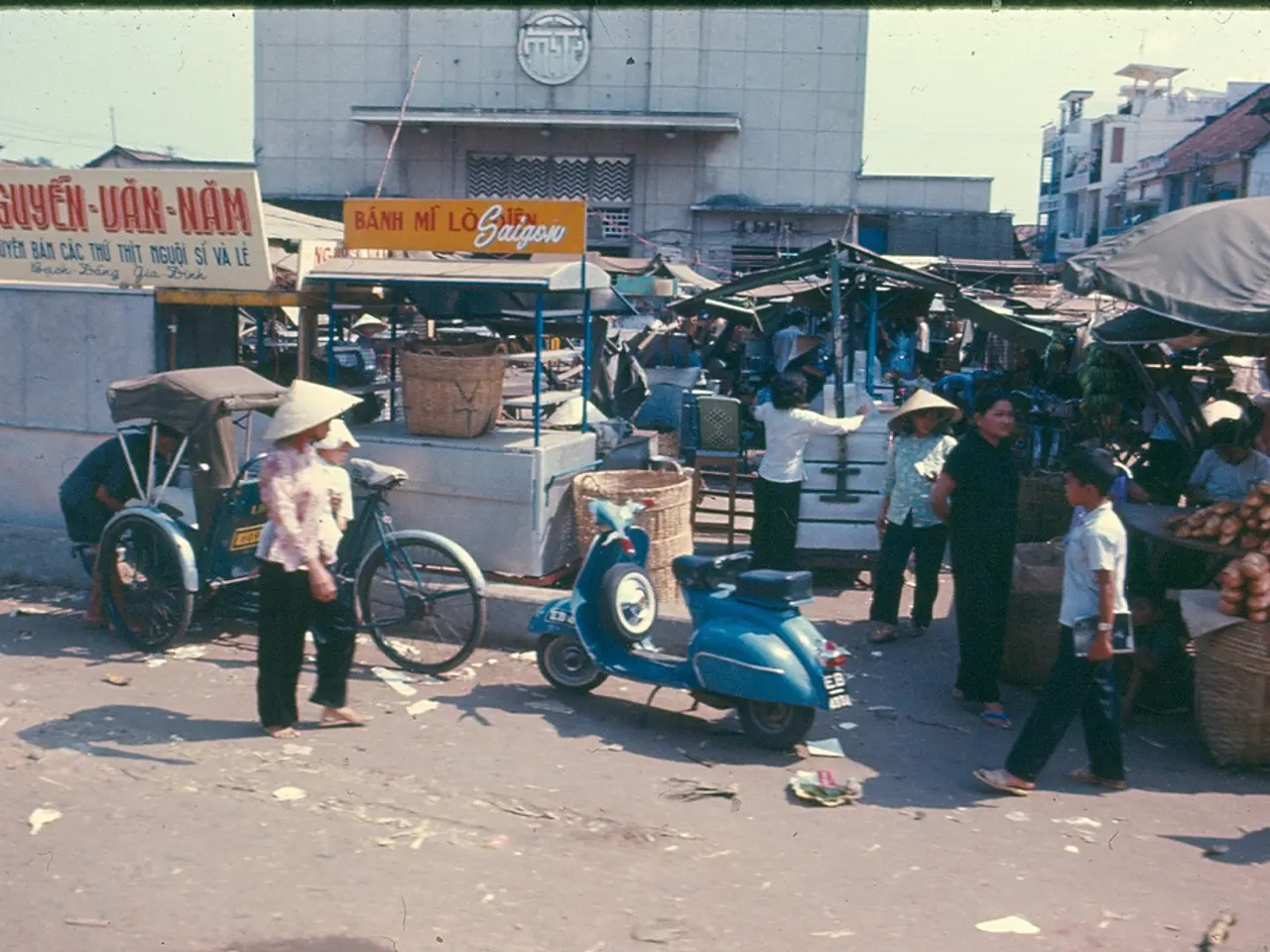Modi Acclaims Swachh Bharat Mission as Embodiment of Collective Determination during 124th Mann Ki Baat Address
Cleaning Up India, One Community at a Time: The Swachh Bharat Mission's Continued Success
The Swachh Bharat Mission (SBM), now approaching its eleventh anniversary, continues to make significant strides in rural sanitation sustainability and urban cleanliness excellence. Over the past decade, the mission has mobilised millions of people across India to take part in cleanliness drives, transforming the nation through community-driven initiatives and empowering women.
Phase II of Swachh Bharat Mission-Grameen (SBM-G) focuses on sustaining Open Defecation Free (ODF) status and introducing comprehensive solid and liquid waste management in rural India. This phase has seen the introduction of innovative campaigns such as the Swachhata Green Leaf Rating and Swachhata Hi Sewa, which encourage community-driven cleanliness efforts.
Urban achievements are also noteworthy, with cities like Surat receiving a 7-star Garbage Free City certification and cities such as Ahmedabad and Vadodara being awarded Water+ certificates and Garbage Free City star ratings in the Swachh Survekshan 2025, the national cleanliness survey.
Women's participation in SBM is crucial, particularly in rural sanitation where they have been frontline agents in adopting and promoting toilet usage, cleanliness, and hygiene practices. The mission's large-scale behavioural change communication and inclusion efforts actively encourage women's engagement in cleanliness drives and sanitation governance.
The mission's communication strategy includes gamification, edutainment, and social mobilization, which facilitate extensive community involvement and nurture women's participation and leadership in sanitation-related activities.
Examples of this can be seen in cities like Lucknow, where a team of volunteers has been cleaning the Gomti River every Sunday for ten years, and in Bhopal, where a 200-member women-led team has improved the city's Swachh Survey ranking by cleaning 17 parks and distributing cloth bags. In Bilha, Chhattisgarh, women trained in waste management have regenerated the town.
Regional initiatives like the Green Roing Initiative in Roing, Arunachal Pradesh, which repurposes waste materials to create a park, demonstrate the Swachh Bharat Mission's influence on local initiatives.
PM Modi has commended these efforts, reminding us that maintaining cleanliness requires ongoing dedication rather than a one-time effort. He has emphasised the mission's commitment to sustainable living and its growth into a powerful public movement, motivated by residents who see cleanliness as a shared responsibility.
Cities like Panaji, Goa, which separates garbage into 16 categories and won the President's Award, and Kirtinagar in Uttarakhand and Mangaluru, which have implemented creative waste management and tech-driven organic waste solutions, respectively, are leading by example in water management, river cleanups, and sustainable practices.
In 2025, the annual Swachh Survey involved over 15 crore individuals and was participated in by more than 4,500 cities and towns. PM Modi stated that the country will remain clean only if we give it priority every day, every moment of the year.
The Swachh Bharat Mission serves as a shining example of teamwork and creativity, transforming India one community at a time.
- The Swachh Bharat Mission's Phase II focuses on sustaining Open Defecation Free status and introducing comprehensive solid and liquid waste management in rural India.
- Innovative campaigns like the Swachhata Green Leaf Rating and Swachhata Hi Sewa encourage community-driven cleanliness efforts in this phase.
- Cities like Surat have received a 7-star Garbage Free City certification, and cities such as Ahmedabad and Vadodara have been awarded water and garbage-free city ratings.
- Women's participation in SBM is crucial, particularly in rural sanitation, where they have been frontline agents in promoting toilet usage, cleanliness, and hygiene practices.
- The mission's communication strategy includes gamification, edutainment, and social mobilization, which facilitate extensive community involvement and nurture women's participation and leadership in sanitation-related activities.
- Examples of this can be seen in cities like Lucknow, where volunteers clean the Gomti River every Sunday, and in Bhopal, where a women-led team has improved the city's Swachh Survey ranking.
- Cities like Panaji, Kirtinagar, and Mangaluru are leading by example in water management, river cleanups, and sustainable practices, demonstrating the Swachh Bharat Mission's influence on local initiatives.




